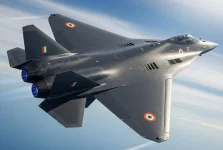- Views: 3K
- Replies: 11

India's planned acquisition of 31 MQ-9 Reaper drones from the US, despite its ongoing development of the indigenous Tapas UAV, underscores the complex realities of India's defence modernization efforts.
While striving for self-reliance in defence technology, India also faces immediate security challenges, particularly from neighboring China, necessitating the acquisition of proven and capable systems.
Technical limitations, especially concerning engine capabilities, have plagued the Tapas program, hindering its ability to match the endurance, communication range, and operational altitude of the MQ-9 Reaper. These shortcomings have prompted India to seek a more capable and readily available solution to meet its current defence needs.
The MQ-9's advanced capabilities, including its long endurance, satellite communication, and high-altitude operation, are particularly valuable for India in monitoring its vast borders and the increasingly contested Indian Ocean region.
The drones are expected to significantly enhance India's surveillance and reconnaissance capabilities, enabling it to better track Chinese naval activity and respond to potential threats.
While the acquisition of the MQ-9s highlights the gap between India's indigenous aspirations and the realities of its defence industry, it also marks a significant step in India's deepening strategic partnership with the US.
This collaboration extends beyond drone acquisition, with ongoing discussions on joint production of jet engines and armored vehicles, reflecting a shared interest in countering China's growing influence.
India's simultaneous pursuit of indigenous defence development and collaboration with foreign partners demonstrates its nuanced approach to military modernization.
The country is committed to reducing its reliance on foreign suppliers, but it also recognizes the need to acquire proven technologies to address immediate security challenges.
The MQ-9 acquisition is likely to provide India with a crucial advantage in the short term, but the long-term goal remains to build a robust domestic defence industry capable of producing advanced systems like the Tapas UAV.
This will require continued investment in research and development, overcoming technological hurdles, and fostering greater collaboration between the public and private sectors.

